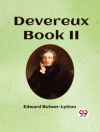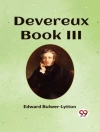In Anthony Trollope’s novel, ‘Dr Wortle’s School’, readers are transported into the world of a small English village where scandal and intrigue unfold within the confines of a respected boys’ school. Trollope’s writing style is characterized by its attention to detail, rich character development, and subtle social commentary. The novel falls into the genre of social realism, typical of Trollope’s work, presenting a vivid and realistic portrayal of Victorian society and its complexities. The story explores themes of reputation, morality, and the consequences of scandal, making it a compelling read for fans of classic English literature. Trollope’s use of wit and irony adds depth to the narrative, keeping readers engaged from start to finish.
Sobre el autor
Anthony Trollope (1815–1882) was a Victorian-era English novelist known for his prolific writing and keen insight into the social classes and institutions of his time. As a writer, Trollope’s realist style and comprehensive narrative structures have granted him an enduring place in the literary canon. Renowned for the ‘Chronicles of Barsetshire’ series and the ‘Palliser’ novels, Trollope penned 47 novels, as well as various short stories and travelogues. ‘Dr. Wortle’s School, ‘ a standalone novel published in 1881, exemplifies Trollope’s nuanced portrayal of moral dilemmas and satirical examination of Victorian society. Trollope’s adeptness at character development is evident in his depiction of the titular headmaster’s conflict between personal principles and societal expectations. Trollope’s prolific output was partly due to his disciplined writing routine, which he balanced with a career in the British Post Office; indeed, he is credited with introducing the iconic red pillar mailboxes to Britain. His works are considered significant for their realism and intricate psychological analyses. Trollope’s influence can be observed on modern storytelling, and he stands amongst the distinguished literary figures of the 19th century, such as Charles Dickens and George Eliot.












